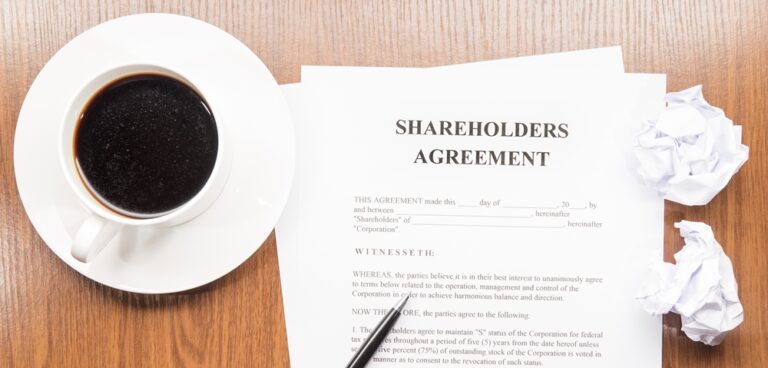In the 2010 biographical drama, The Social Network, which portrays the founding of Facebook, the initial excitement and success of a start-up turns sour and ends in legal battles and betrayal. While a very extreme case, the film highlights a common issue that start-ups run into, says Dan Adams, co-founder of legal advice for start-up businesses specialist, Arbor Law. Here, Dan suggests a simple way co-founders can protect their young business and ensure stable scalability.
When starting a new business, it may seem like there are more important things to do than draft a detailed shareholders’ agreement. Co-founders don’t necessarily want to consider all the worst-case scenarios and put them into legal language, because everything is going well, everyone is getting on and there’s a positive atmosphere surrounding the new venture.
On top of that, many start-ups are under-resourced and co-founders often prefer to allocate precious time and money to business-critical systems rather than hiring lawyers and getting contracts in place between one another.
However, early-stage businesses are prone to many challenges and things can change rapidly. One co-founder might be offered a job elsewhere, they might decide the idea is not for them anymore or they might just want to move on.
You can run into all sorts of problems if that happens in the absence of some kind of contract between you and your co-founder(s). If appropriate terms are not agreed upon beforehand and one of the co-founders disappears, this can raise many issues around the assets of the business such as any intellectual property (IP), existing clients or revenue. It will be unclear what is owned by the company, what is owned by the founders and what (if anything) the remaining founders can do with the business.
Consider two founders who each hold an equal 50 per cent stake in the company. If one founder leaves the company, there is no straightforward legal mechanism for the remaining founder to acquire any of the departing founder’s shares without a contract that explicitly grants such rights.
In this situation, one founder can use their half of the shares to block the other from doing anything and the company becomes deadlocked. Unfortunately, this happens very frequently and, unless you can come to a friendly negotiation with your co-founders, you’re stuck.
Make hay while the sun shines
One way to protect the business and the co-founders is to get some kind of basic contract in place while everything is running smoothly. A detailed shareholders’ agreement can be very long but, for many start-ups, it is enough initially to create an agreement that aligns expectations and provides a plan if things change.
Some law firms can provide founders with a simplified shareholders’ agreement at a flat rate, such as Arbor Law’s founders’ agreement, a two- or three-page document that formalises the absolute essentials. It strikes the balance between formalising a structure without overcomplicating things and is a sensible first step until creating a more formal detailed shareholders’ agreement down the line.
If Mark Zuckerberg, Edouardo Savarin and the Winklevoss twins had created a founders’ agreement back in 2003, the plot of The Social Network would have been much less dramatic. For some tips on what to include when creating a founder’s agreement, to get support with one, or any legal advice for start-ups, contact one of the team at Arbor.law for a free discovery call

